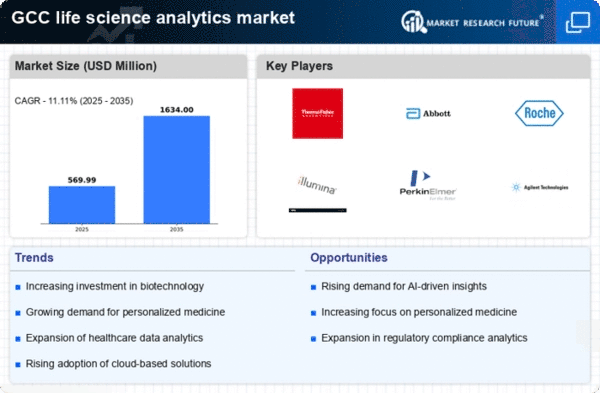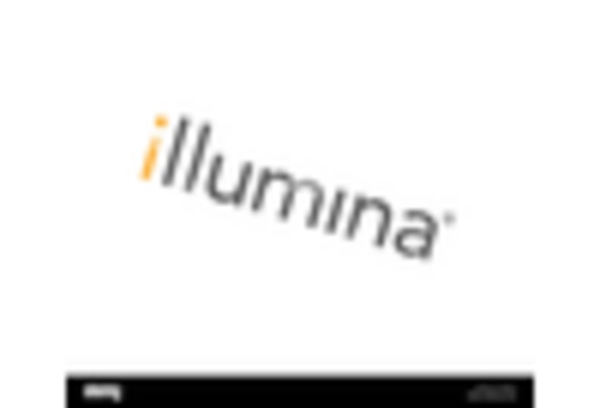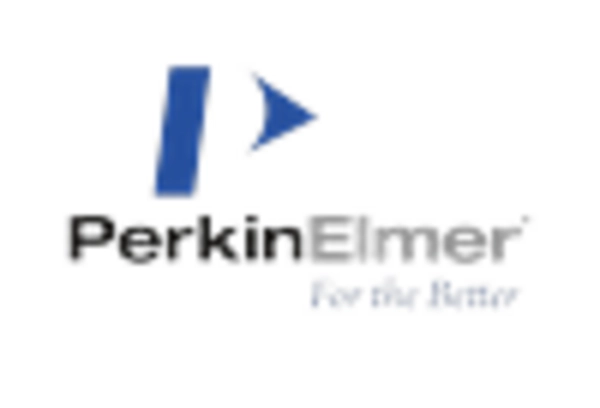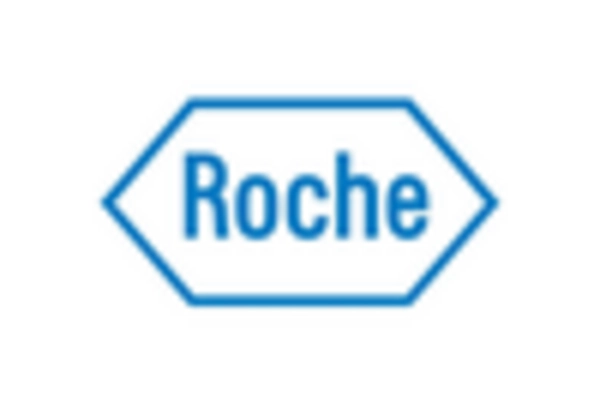Rising Demand for Personalized Medicine
The life science-analytics market is experiencing a notable surge in demand for personalized medicine within the GCC region. This trend is driven by advancements in genomics and biotechnology, which enable tailored treatment plans based on individual patient profiles. As healthcare providers increasingly adopt data-driven approaches, the market for analytics solutions that support personalized medicine is projected to grow significantly. In fact, the market is expected to reach approximately $1.5 billion by 2026, reflecting a compound annual growth rate (CAGR) of around 12%. This shift towards personalized healthcare not only enhances patient outcomes but also optimizes resource allocation in healthcare systems, thereby driving the growth of the life science-analytics market in the GCC.
Growing Focus on Data-Driven Decision Making
The life science-analytics market is increasingly influenced by a growing focus on data-driven decision making among healthcare stakeholders in the GCC. As healthcare organizations recognize the value of data analytics in improving patient outcomes and operational efficiency, there is a marked shift towards adopting advanced analytics tools. This trend is underscored by the fact that approximately 70% of healthcare executives in the region believe that data analytics will play a pivotal role in shaping the future of healthcare. The integration of analytics into clinical workflows is expected to enhance diagnostic accuracy and treatment efficacy, thereby propelling the growth of the life science-analytics market.
Emergence of Advanced Analytical Technologies
The emergence of advanced analytical technologies is reshaping the landscape of the life science-analytics market in the GCC. Innovations such as big data analytics, cloud computing, and real-time data processing are enabling healthcare providers to harness vast datasets for improved insights. These technologies facilitate the analysis of complex biological data, leading to breakthroughs in drug discovery and development. As a result, the market is projected to witness substantial growth, with estimates suggesting a CAGR of around 15% over the next five years. The adoption of these advanced technologies is likely to enhance the capabilities of healthcare organizations, driving the demand for analytics solutions in the life science-analytics market.
Regulatory Support for Innovation in Healthcare
Regulatory support for innovation in healthcare is a significant driver for the life science-analytics market in the GCC. Governments are increasingly recognizing the importance of fostering an environment that encourages research and development in the life sciences. Initiatives aimed at streamlining regulatory processes and providing incentives for innovation are likely to stimulate growth in the analytics sector. For instance, the establishment of regulatory frameworks that support the use of real-world evidence in clinical decision-making is expected to enhance the adoption of analytics solutions. This supportive regulatory landscape is anticipated to propel the life science-analytics market forward, as stakeholders seek to leverage analytics for improved healthcare outcomes.
Increased Investment in Healthcare Infrastructure
Investment in healthcare infrastructure across the GCC is a critical driver for the life science-analytics market. Governments in the region are prioritizing healthcare development, leading to the establishment of advanced medical facilities and research institutions. This influx of capital is fostering an environment conducive to the adoption of analytics solutions that enhance operational efficiency and patient care. For instance, the GCC healthcare expenditure is projected to exceed $100 billion by 2025, with a significant portion allocated to technology integration. Consequently, the life science-analytics market is likely to benefit from this trend, as healthcare providers seek innovative solutions to manage vast amounts of data and improve clinical decision-making.

















